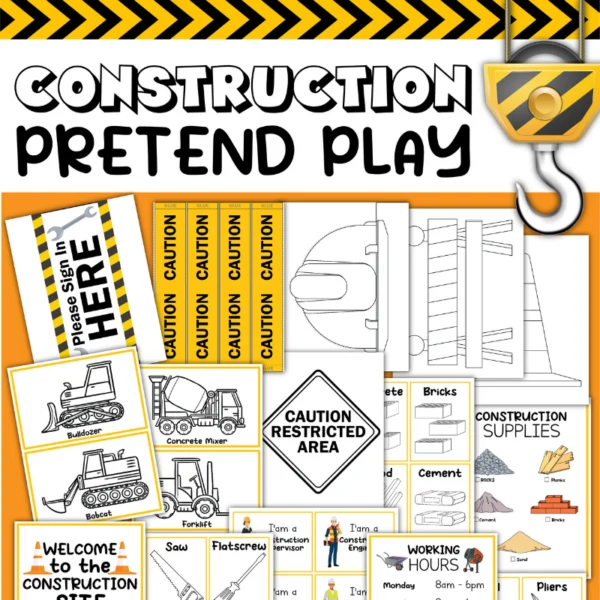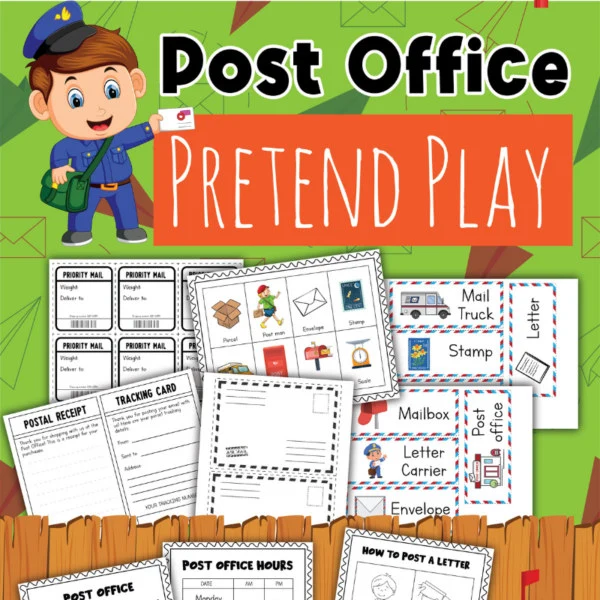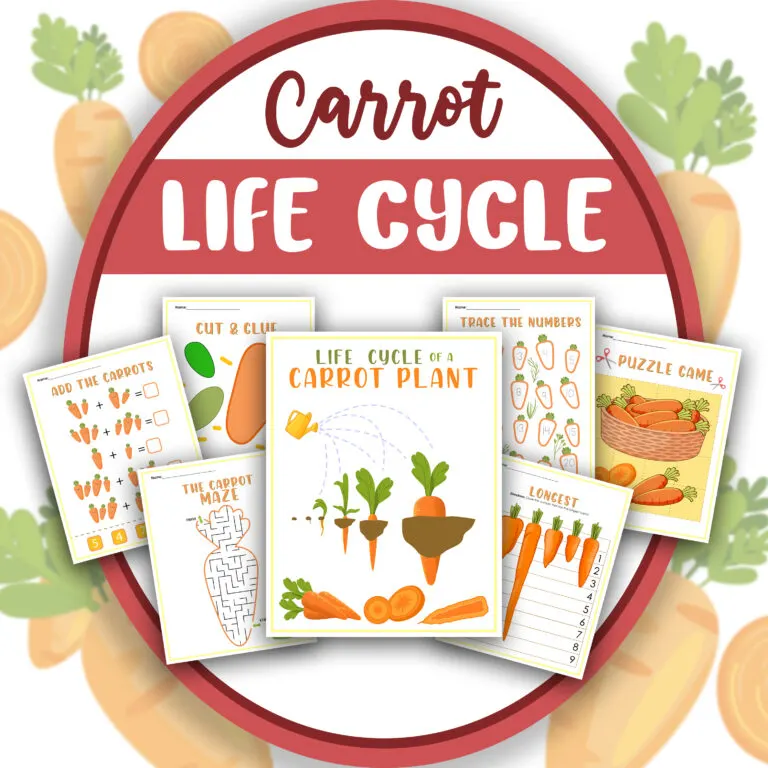Our ability to remember and recall plays a significant role in our daily lives. Memory and recall skills are essential for academic success and personal and social development.
As educators, it is essential to foster these skills in children from a young age as their cognitive processes are still developing. Learning these skills is essential for helping with child development skills!

In this blog post, we will explore memory and recall skills, their importance, activities to promote them, and how to provide an environment for a child to develop them independently.
What Are Memory and Recall Skills?
Memory and recall skills are part of a group of cognitive functions responsible for our ability to retain and retrieve information. The human brain has a complex memory system involving different types of memory, such as short-term and long-term.
Short-term memory refers to our ability to remember information for a brief period, such as remembering a phone number before dialing it.
On the other hand, long-term memory refers to our ability to retain information for a longer period, such as our personal experiences or general knowledge.
Why Are Memory and Recall Skills Important?
Memory and recall skills are vital daily, especially in academic contexts. From reading comprehension to learning a new skill, our ability to remember and recall information directly impacts our academic performance.
Memory skills also facilitate social and emotional development, allowing children to remember essential cues or events, such as how to behave in certain situations or remember a friend’s birthday.
Fostering the Development of Memory and Recall Skills in Children
Fostering an environment that promotes the development of memory and recall skills in children is crucial for their cognitive growth and academic success.
Here are some tips to create an environment conducive to enhancing these essential skills:
Encourage Active Engagement
Engage children in interactive learning activities such as storytelling, games, and discussions to stimulate their memory and recall abilities.
Establish Routines
Consistent daily routines help children develop a sense of structure, aiding in memory formation. Encourage regular study or reading times to reinforce memory retention.
Utilize Visual Aids
Incorporate visual aids like charts, diagrams, and colorful illustrations to help children visualize information, making it easier for them to remember concepts.
Multisensory Learning
Encourage learning through various senses by incorporating hands-on activities, music, and movement, as this can enhance memory encoding and retrieval.
Practice Recollection
Engage in activities that require children to recall information, such as asking them to narrate events from their day or summarize a story they read.
Create a Supportive Environment
Provide a supportive and nurturing atmosphere where children feel comfortable expressing themselves and sharing their thoughts, fostering confidence and strengthening memory.
By implementing these strategies, parents and educators can play a pivotal role in cultivating an environment that nurtures children’s memory and recall skills, setting them up for success in both their academic and personal lives.
Activities to Promote Memory and Recall Skills
You can do various activities to promote memory and recall skills as an educator or caregiver. Here are a few ideas:
Play memory games – Memory games, such as concentration or matching games, engage the brain and help improve memory retention skills.
Encourage storytelling – Storytelling helps children remember important events and details, such as family history or experiences.
Use visual aids – Visual aids, such as pictures or diagrams, help children retain information and make it easier to recall.
Create a routine – Routines help establish a pattern, making it easier for children to remember daily tasks or activities.
Learning Printables and Activities
These are excellent resources for kids! They’ll love being a part of the learning process from start to finish.



Fostering an Environment for Independent Memory Development
Providing a nurturing and stimulating environment is crucial for children to develop their memory and recall skills independently. Below are a few tips to help foster an ideal environment:
Encourage active participation
Encouraging children to participate in conversations, games, and activities actively helps stimulate their cognitive processes and improve their memory.
Provide opportunities for exploration
Allowing children to explore their surroundings and experiment with new things is essential for developing memory and recall skills.
Limit distractions
Too many distractions can make it difficult for children to focus and remember important things. Create a quiet, comfortable, and distraction-free space for their academic and personal activities.
Comparing and Contrasting Memory and Recall Skills with Other Developmental Skills in Children
Memory and recall skills are pivotal in a child’s cognitive development, but they are just one aspect of a broader set of developmental skills.
Contrasting these skills with others can provide valuable insights into their unique characteristics and the methods for fostering their growth.
Memory and Recall Skills:
- Definition: Memory refers to the ability to store and retrieve information, while recall is the process of retrieving stored information.
- Development: These skills continue to mature throughout childhood, with significant strides occurring in early and middle childhood.
- Tips: Encourage activities that stimulate memory, such as storytelling, games, and visual aids, and practice recollection through conversations and summarization exercises.
Language and Communication Skills:
- Definition: Language skills encompass listening, speaking, reading, and writing, while communication skills involve the ability to convey and interpret information effectively.
- Development: Language and communication skills undergo rapid development in early childhood, laying the foundation for further refinement throughout adolescence.
- Tips: Engage children in conversations, storytelling, and reading to enhance language comprehension and expression.
Motor Skills:
- Definition: Motor skills encompass gross motor (e.g., walking, running) and fine motor (e.g., writing, grasping) abilities.
- Development: Gross motor skills develop in early childhood, whereas fine motor skills progress through intentional practice and refinement.
- Tips: To enhance motor skill development, provide opportunities for physical activity and fine motor tasks such as drawing, puzzles, and building blocks.
Social and Emotional Skills:
- Definition: Social skills involve interacting with others, while emotional skills encompass understanding and managing one’s emotions.
- Development: These skills progress from fundamental social interactions in early childhood to more complex emotional awareness and empathy in later stages.
- Tips: Foster social interaction through playdates and group activities, and encourage emotional expression and empathy through open communication.
Understanding these skills’ distinct characteristics and developmental trajectories is crucial for creating an environment that supports holistic growth in children.

By recognizing the interconnected nature of these skills and implementing targeted strategies, parents and educators can effectively nurture children’s multifaceted development.
Fostering memory and recall skills in children is crucial for their academic, personal, and social development. Educators, caregivers, and parents play an essential role in promoting and nurturing these skills.
By implementing the abovementioned ideas and cultivating an ideal environment, we can help children develop strong memory skills that will serve them well throughout their lives.


















